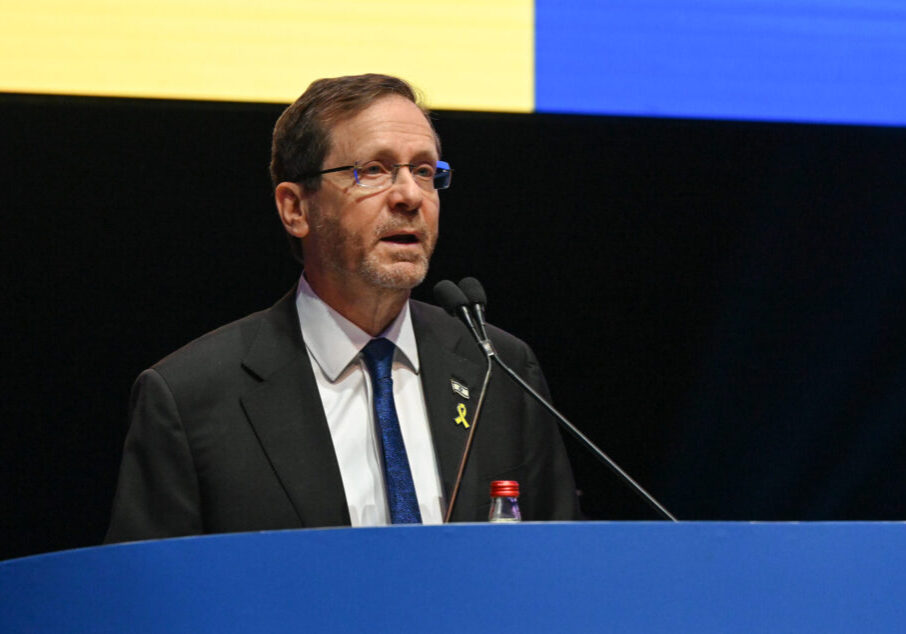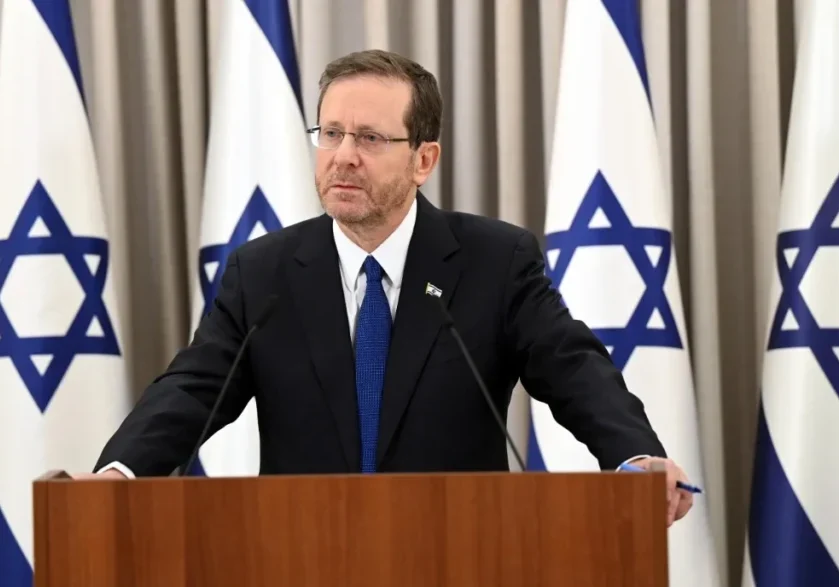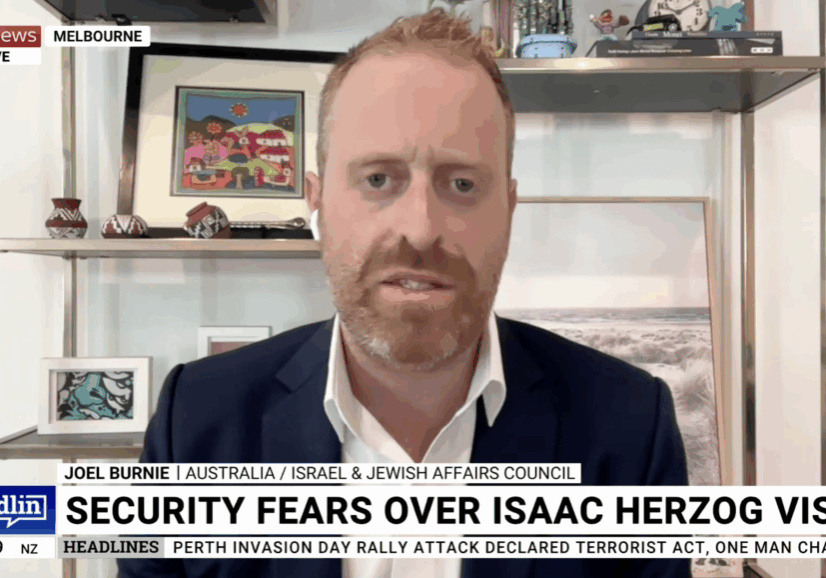Australia/Israel Review
Gaza Dilemmas
Feb 27, 2008 | Efraim Inbar
By Efraim Inbar
On Jan. 23, 2008, Hamas blew apart the Israeli-erected barrier between Gaza and Egypt, allowing for the free passage of Gazans into the Egyptian-controlled Sinai Peninsula. The destruction of the Rafah wall will undoubtedly affect regional politics into the foreseeable future. While in the short term the new situation poses great security risks for Israel and Egypt, in the longer run it may prove to be conducive to the development of new paradigms for Palestinian-Israeli conflict management.
Hamas’ breach of the Palestinian border with Egypt came in response to an Israeli blockade of the Strip, imposed in the hopes of curbing the daily barrage of Hamas-fired Qassam rockets on cities in southern Israel.
The event strengthened Hamas in several ways. First, Hamas was successful in reducing the pressure applied directly by Israel and indirectly by Egypt, which was designed to curtail Hamas’ aggressive behaviour. Breaking the “cordon sanitaire” around Gaza and allowing a shopping spree in Sinai for hundreds of thousands of Gazans lowered the level of domestic criticism due to economic difficulties. This clearly strengthened the Hamas regime, which demonstrated ingenuity in withstanding outside pressure.
Second, Hamas forced Egypt to negotiate over the crisis, upgrading its status in the Arab and Muslim worlds. Third, Hamas’ rule has been entrenched because various forms of support from Iran are now more easily delivered. The chances of the Mahmoud Abbas-led Palestinian Authority (PA) retaking control of Gaza look more remote than ever.
Hamas’ burgeoning rule in Gaza will increase terrorism against Israel in the form of rockets and suicide bombers. The opening of freer access to and from Gaza allowed for an influx of money and arms, as well as for a rise of terrorists into Sinai, an easier point of entry from which to attack Israel. The armed struggle against Israel is after all an article of faith for the Hamas fanatics. Killing Jews has always been popular among Palestinians and it bolsters the popularity of Hamas versus the moribund PA.
In the short term, Israel’s security is indeed negatively affected. Israel already witnessed movement restrictions in parts of the Negev due to security concerns. More seriously, for the first time in over a year, a suicide bomber exploded in the southern city of Dimona. The issue of building a security barrier along the Egyptian border, a very expensive endeavour, has re-emerged. The ability of Hamas to play a role in the West Bank via the Sinai and the porous Negev was enhanced.
In the long run, the impact of the recent developments in Gaza is varied. The events serve as the culmination of the unilateral withdrawal from the Gaza Strip initiated by Ariel Sharon in 2005.
Israel completely removed its military presence and its settlements from Gaza because it no longer wanted a part in the future of the Strip. After withdrawal, Jerusalem cannot be accused of holding the Gazans in a “prison” because Gaza also borders Egypt. Moreover, the Gazans are shooting Qassam rockets toward Israeli towns daily, making any demands of the international community toward Israel to supply food and energy needs to its fanatic enemies more ludicrous than ever. Israel should finally be let off the hook concerning the well-being of the Gazans.
Indeed, the disengagement rationale and the violent hostility of the Palestinians in Gaza are having a significant impact on the thinking of Israeli leaders. Israel’s leaders have no reason to continue assistance to those who enjoy the sights of suffering in Sderot.
As the suffering of Sderot and environs increases, Israel is increasingly likely to take up arms to end the terrorist harassment of its civilians. The continuous rain of Qassams on the Jewish towns around Gaza undermines the social contract the Israeli state is built on. The first obligation of any state is to provide security to its citizens. Therefore, Gaza and Israel are on a course of armed conflict and it is only a question of time as to when Israeli troops will subject Gaza to the same type of treatment the West Bank received in March-April 2002.
For those sceptical of the process initiated at Annapolis (a majority of Israelis), the developments in Gaza only reinforce their assessment that Mahmoud Abbas cannot deliver an Israeli-Palestinian agreement. The ascendance of an independent Gaza under the rule of Muslim radicals further fragments the Palestinian national movement and points to the futility of the two-state paradigm, which still attracts lip service from most of the world.
This paradigm has been predominant for the past 70 years; the first plan for partition of the Land of Israel was rejected by the Arabs in 1936. Unfortunately, the issue of finding a responsible partner for such a partition still haunts the Jewish state.
Yet, the emergence of Hamastan in Gaza may propel Egypt into a “partner” role, which it played willingly in the 1948-67 period. It is very understandable that Egypt does not want to again rule over Gaza. Nevertheless, Hamas’ success in opening the Egypt-Gaza border places Egypt on the horns of a dilemma.
Thus far, Egypt enjoyed the bleeding of Israel, a regional rival, by Hamas – with little cost to itself. But Hamas has grown more powerful and its free access to Sinai has become dangerous. Hamas is far from being the darling of the current Egyptian regime since its links to the Muslim Brotherhood threaten the rule of President Hosni Mubarak and his heir. The indecisive Egyptian reaction to the breach in the Rafah wall reflected this dilemma.
On the one hand, Egypt must show solidarity with the Palestinians and sensitivity to their suffering. Therefore, it allowed Gazans to enter its territory. On the other hand, Egypt is a proud sovereign country that wants full control over its borders. It is particularly fearful of the influence of Hamas at home. The rule of Hamas in Gaza is an encouraging development for all Muslim radicals throughout the world.
Egypt, like most established Arab states, does not want Hamas to flourish. Nevertheless, Egypt was already manipulated several weeks ago by Hamas when it allowed Gazans returning from pilgrimage to Mecca to enter the Gaza Strip in violation of an agreement with Israel. Hamas again took advantage of Egyptian sensibilities to blast holes in the Rafah wall.
It is not yet clear how the Egyptian dilemma will play out. One distinct possibility is a greater Egyptian role in Gaza to limit the Islamist influence. This is advantageous for Israel, even if some terror may still originate in Gaza. Actually, such a scenario could evolve only after a large-scale Israeli military operation that would extract a heavy price from Gaza, seriously weakening Hamas, particularly its military wing. Then, Gazans may become more susceptible to an enhanced Egyptian presence (which may or may not be formal).
Informal agreements for Arab influence and unofficial control in the Palestinian areas may prove to be quite conducive to the achievement of basic stability in the region. Eventually, Egyptian informal rule over Gaza might be emulated by Jordan in the West Bank. A large number of Palestinians are fed up with their national movement; it has brought only suffering to the Palestinian people. Thus, the new situation in Gaza could beget an opportunity for the emergence of a new paradigm in which Arab states share the burden of ruling over the unruly Palestinians.
Dr. Efraim Inbar is professor of political studies at Bar-Ilan University and the Director of its Begin-Sadat (BESA) Centre for Strategic Studies. © BESA Perspectives, reprinted by permission, all rights reserved.






